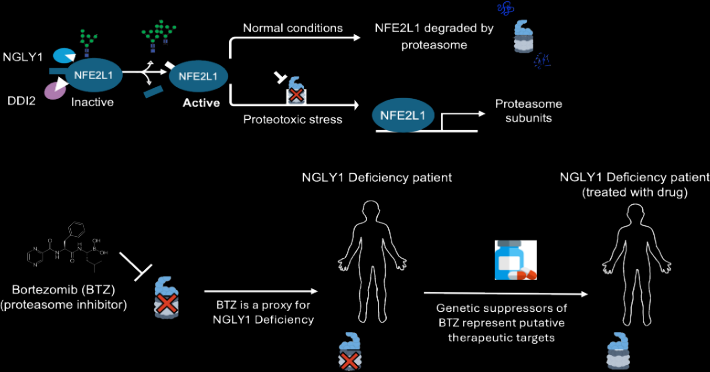Exploring GIs in a Human Cell Line:
Exploring the Biological Role of a Deglycosylase Implicated in a Rare Disease
People
Sylvia Almeida
NGLY1 Deficiency is a rare multi-systemic autosomal recessive disease caused by mutations in N-glycanase 1 (NGLY1) and has no known cure. Patients with the disease present with a broad range of symptoms including developmental delays, hypotonia, intellectual and motor impairments, liver dysfunction, and seizures. NGLY1 is a deglycosylase which has been implicated in protein quality control and regulation of the proteasome. However, much is still unknown about its biological role in the cell and the mechanisms of disease pathogenesis are poorly understood.
Our goal is to elucidate the function of NGLY1 in human cells. One known role of NGLY1 is in activating the response to proteotoxic stress and NGLY1 mutant cells are hypersensitive to proteasome inhibition. Therefore, we aim to investigate the mechanisms by which cells can become resistant to proteotoxic stress to identify pathways which can suppress the proteostatic defects caused by loss of NGLY1. A second aim of this project is to survey NGLY1 function on a global scale. To achieve this, we are using genome-wide CRISPR-Cas9 screening of the nearly haploid human cell line HAP1 as an unbiased strategy to profile NGLY1 and potentially identify novel roles for this gene in the cell.



